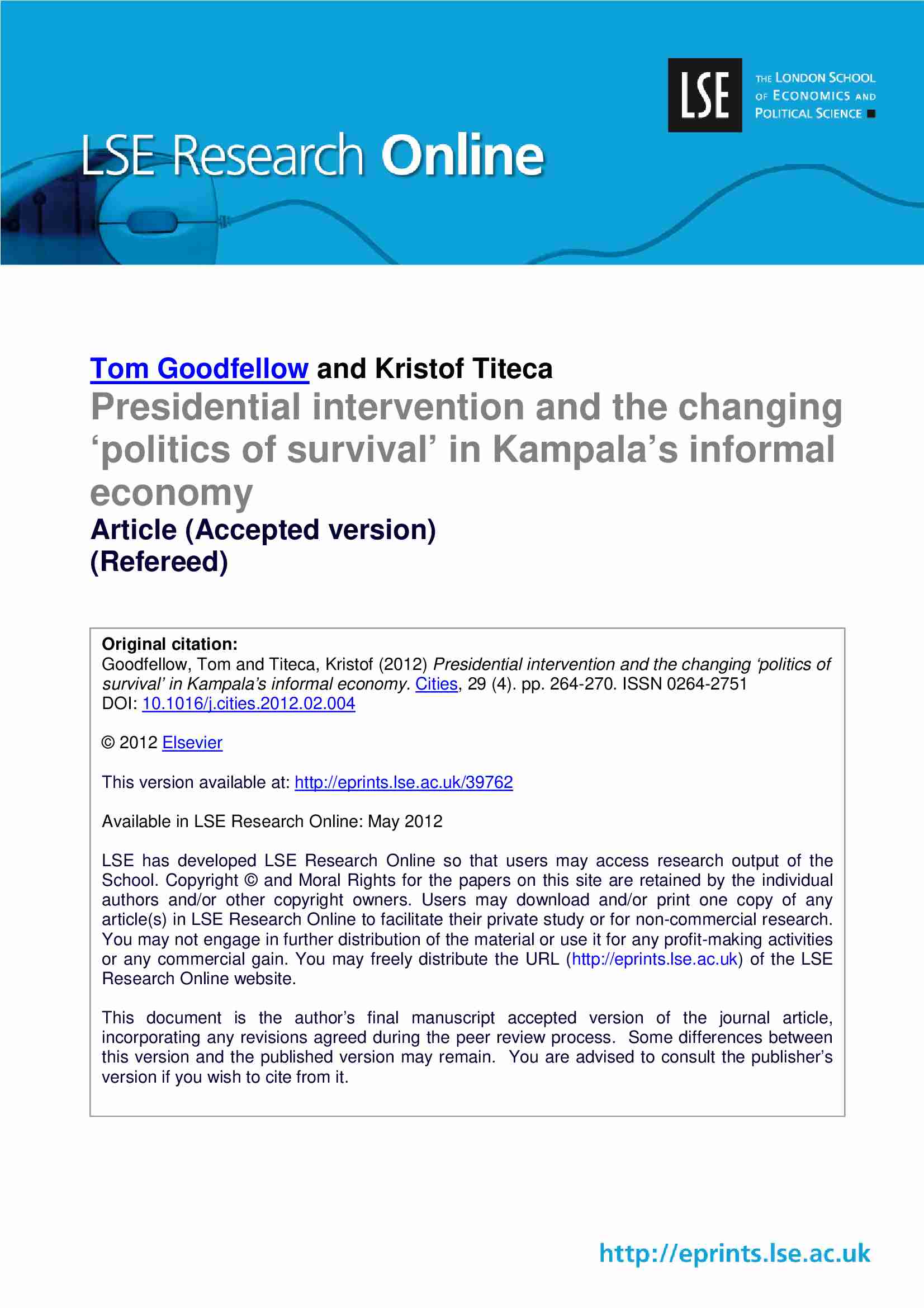Presidential intervention and the changing ‘politics of survival’ in Kampala’s informal economyLondon School of Economics and Political Science
Abstract:
"In theory, urban governance involves non-state actors and the state working together in formally institutionalized ways to make collective decisions and provide urban services. However, in developing country cities with highly informalized economies, the processes that underpin ‘real’ governance often reflect informal bargaining power much more than formal institutional frameworks. This paper uses the case of Uganda’s capital Kampala to explore how political configurations subvert structures of city governance, with particular attention to the increasing engagement between President Museveni and particular groups of informal workers. We present empirical research on market vendors and motorcycle taxi (boda–boda) drivers showing how this engagement benefits both the informal groups and the president. Increased political competition has created an environment where informal groups seeking to protect their livelihoods can tactically leverage a presidential intervention in their favour, helping them evade the policies and regulations of the City Council. Meanwhile, the president has used these interventions to build support in a city that was largely lost to the opposition. These processes have progressively undermined already weak formal institutions for urban governance."
View list of all: Journal Articles

